For more than two decades, Frenchman Kader Attou has been one of the main movers behind the drive to take hip-hop from big city sidewalks to the stage, combining a constantly evolving urban dance form with contemporary dance, Indian kathak, martial arts movements and circus acrobatics.
Attou has said he became infatuated with hiphop as a teenager by watching a French television show, H.I.P. H.O.P. and trying to replicate the moves he saw on the screen. In 1989, he joined forces with Eric Mezino, Chaouki Said and Mourad Merzouki to found the dance collective Compagnie Accrorap.
It is interesting that he and Merzouki, both Frenchmen of Algerian descent, have become two of the most prominent proponents of the dance form in France and elsewhere in Europe. Both men have since become part of France’s dance establishment, Attou being named director of the Centre Choregraphique National in La Rochelle and Poitou-Charentes in September 2008, while Merzouki — who established his own company, Kafig, in 1996 — was appointed director of the Centre Choregraphique de Creteil et du Val de Marne in June 2009.
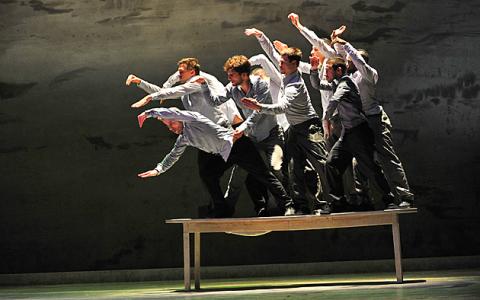
Photo courtesy of Julien Chavet
Attou and Accrorap are in Taipei this week for two shows of his 2013 production, The Roots at the National Sun Yat-sen Memorial Hall tomorrow and Saturday night, having spent the past few weeks touring Hong Kong, Beijing, Shanghai and Guangzhou.
The hour-and-a-half show, set on 11 male dancers, is both a retrospective of hiphop history and foreshadowing of the genre’s future, as Attou examines the boundaries and links between hiphop and contemporary dance — having cited diverse luminaries as Germany’s Pina Bausch and France’s Odile Duboc — as major influences on his choreographic development, along with his international travels.
In some interviews he has described himself as a “dance smuggler” and bridge builder.
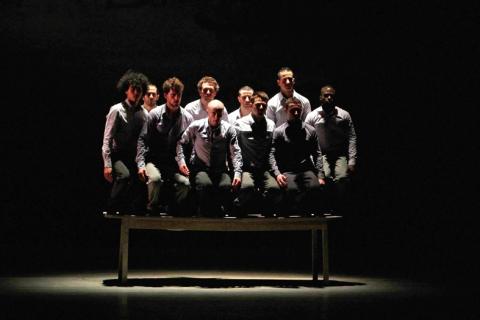
Photo courtesy of Joao Garcia
The Roots is billed as “a human adventure,” although the stage is set with the most ordinary of human accessories: tables, wooden chairs, armchairs, a sofa, floor lamps, a record player and a radio. However, what Accrorap’s 11 men get up to among those items truely is adventurous — and probably should come with a warning that the moves should not be attempted by viewers in their own homes.
Divided into chapters, the show gives each dancer a chance to show his individual talents, while emphasizing the group’s dynamics.
Attou said music is a crucial element in the show, as melodies not only open the door to memories, but to mankind’s dancing. The score for the show, created by Regis Baillet-Diaphane, defies categorization, including everything from pieces from the classical canon to electronic music.
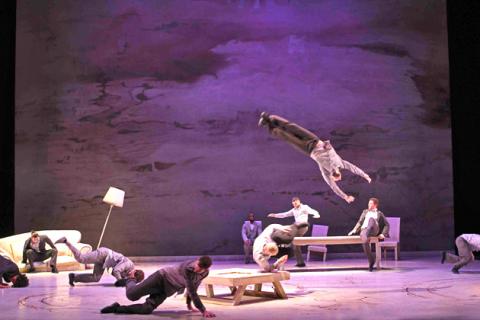
Photo courtesy of Joao Garcia
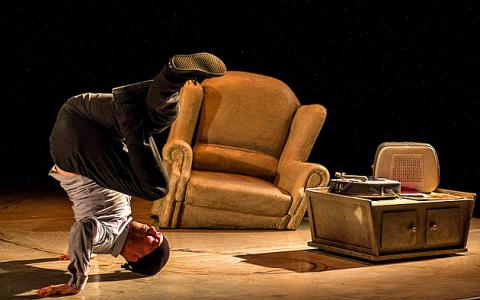
Photo courtesy of G. Perez
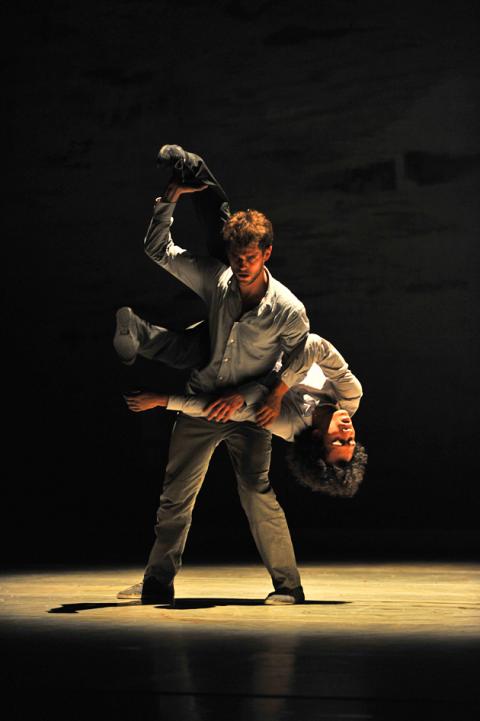
Photo courtesy of Julien Chavet

Cheng Ching-hsiang (鄭青祥) turned a small triangle of concrete jammed between two old shops into a cool little bar called 9dimension. In front of the shop, a steampunk-like structure was welded by himself to serve as a booth where he prepares cocktails. “Yancheng used to be just old people,” he says, “but now young people are coming and creating the New Yancheng.” Around the corner, Yu Hsiu-jao (饒毓琇), opened Tiny Cafe. True to its name, it is the size of a cupboard and serves cold-brewed coffee. “Small shops are so special and have personality,” she says, “people come to Yancheng to find such treasures.” She

Late last month Philippines Foreign Affairs Secretary Theresa Lazaro told the Philippine Senate that the nation has sufficient funds to evacuate the nearly 170,000 Filipino residents in Taiwan, 84 percent of whom are migrant workers, in the event of war. Agencies have been exploring evacuation scenarios since early this year, she said. She also observed that since the Philippines has only limited ships, the government is consulting security agencies for alternatives. Filipinos are a distant third in overall migrant worker population. Indonesia has over 248,000 workers, followed by roughly 240,000 Vietnamese. It should be noted that there are another 170,000

In July of 1995, a group of local DJs began posting an event flyer around Taipei. It was cheaply photocopied and nearly all in English, with a hand-drawn map on the back and, on the front, a big red hand print alongside one prominent line of text, “Finally… THE PARTY.” The map led to a remote floodplain in Taipei County (now New Taipei City) just across the Tamsui River from Taipei. The organizers got permission from no one. They just drove up in a blue Taiwanese pickup truck, set up a generator, two speakers, two turntables and a mixer. They

Hannah Liao (廖宸萱) recalls the harassment she experienced on dating apps, an experience that left her frightened and disgusted. “I’ve tried some voice-based dating apps,” the 30-year-old says. “Right away, some guys would say things like, ‘Wanna talk dirty?’ or ‘Wanna suck my d**k?’” she says. Liao’s story is not unique. Ministry of Health and Welfare statistics show a more than 50 percent rise in sexual assault cases related to online encounters over the past five years. In 2023 alone, women comprised 7,698 of the 9,413 reported victims. Faced with a dating landscape that can feel more predatory than promising, many in